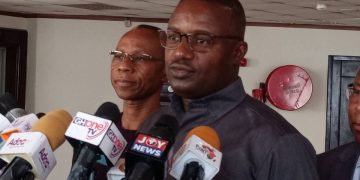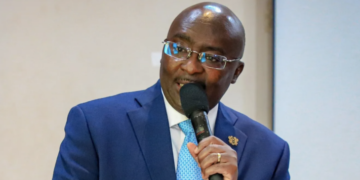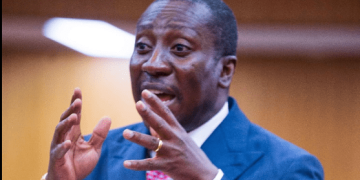In the name of God, the compassionate the merciful
In a recent directive, his Excellency John Mahama announced a ban on nonessential travel for all government appointees as part of efforts to cut down on public expenditure. He further emphasized that any essential travel must be approved by the Office of the Chief of Staff and undertaken with modesty, explicitly prohibiting first-class travel and lavish lifestyles. This decision comes at a time when Ghanaians are enduring significant economic hardships, largely attributed to the mismanagement of the economy over the past eight years. President Mahama’s directive reflects a deep sense of responsibility and empathy for the plight of the people, aligning closely with the principles of Islamic finance, which emphasize ethical stewardship, modesty, and social justice. No wonder he is in the process of implementing this invaluable financial system for the Ghanaian economy.
The Principles of Islamic Finance and Ethical Leadership
Islamic finance is rooted in principles that promote fairness, transparency, and the equitable distribution of resources. Key tenets include the prohibition of extravagance (israf), the avoidance of waste (tabdhir), and the prioritization of social welfare over individual luxury. These principles are not merely financial guidelines but also moral imperatives that encourage leaders to act as stewards of public resources, ensuring that wealth is used for the collective good rather than personal indulgence.
President Mahama’s directive resonates strongly with these principles. By banning nonessential travel and insisting on modest travel arrangements, he stands against extravagance and waste. This move demonstrates a commitment to ethical governance, where public funds are safeguarded and utilized responsibly. In a country where many citizens struggle to make ends meet, such measures are practical and morally imperative.
Sympathy for the People: A Leadership Virtue
President Mahama’s acknowledgement of the hardships faced by Ghanaians is a testament to his empathy and understanding of the challenges confronting the nation. He explicitly stated, “The people of Ghana are enduring difficult times occasioned by hardship resulting from the economic mismanagement of the last 8 years. And ours is to work and lift them out of this and not to compound it further.” This statement reflects a leader who is deeply attuned to the suffering of his people and is determined to alleviate their burdens.
Empathy and compassion for the less fortunate are highly valued in Islamic teachings. The Quran and the teachings of the Prophet Muhammad (peace be upon him) repeatedly emphasize the importance of caring for those in need and ensuring that their dignity is preserved. By prioritizing the welfare of Ghanaians over the comfort of government officials, President Mahama is embodying these values and setting an example of servant leadership.
A Step Toward Economic Justice
The economic mismanagement of the past has left Ghana in a precarious position, with many citizens facing unemployment, rising costs of living, and limited access to basic services. President Mahama’s directive is a step toward rectifying these injustices by reallocating resources to where they are most needed. This aligns with the Islamic principle of economic justice, which calls for the equitable distribution of wealth and the elimination of disparities between the rich and the poor.
By curbing unnecessary expenditures and promoting modesty, the government can redirect funds toward initiatives that benefit the broader population, such as healthcare, education, and infrastructure development. This approach not only addresses immediate economic challenges but also lays the foundation for sustainable growth and development.
Praise for President Mahama’s Leadership
President Mahama’s decision to impose a ban on nonessential travel and enforce modest living standards among government appointees deserves commendation. It is a bold and necessary step that demonstrates his commitment to ethical governance and his empathy for the struggles of ordinary Ghanaians. In a world where leaders are often criticized for being out of touch with the realities of their citizens, President Mahama’s actions serve as a reminder of the importance of humility, responsibility, and compassion in leadership.
In a nutshell, President John Mahama’s travel ban and emphasis on modesty in government expenditure are not just practical measures to address economic challenges; they are also a reflection of his deep empathy for the people of Ghana. By aligning his actions with the principles of Islamic finance, he has demonstrated that ethical leadership is not only possible but essential in times of crisis. As Ghana continues to navigate its economic difficulties, President Mahama’s travel ban and commitment to fairness, transparency, and social justice offers hope for a brighter and more equitable future. His leadership serves as a powerful reminder that true progress begins with compassion and a steadfast dedication to the well-being of all citizens. And Allah knows best!
YAHAYA ILIASU MUSTAPHA
The writer is the Ghana representative of the Alhuda Centre of Islamic Banking and Economics, Dubai, and Islamic Banking and Finance patron and advocate in Ghana. He is also the founder of ‘Islamic Finance TV Gh’ on Facebook, TikTok, and YouTube. He holds a BSc. in Islamic banking, economics, and finance from the International Open University a BA. in Political Science from the University of Ghana, and a Diploma in Education from the University of Winneba. We would want to collaborate and partner with any persons or organizations who are willing to explore this field in Ghana and beyond.
Email: yahaya0246873726@gmail.com
https://www.facebook.om/Yahaya.iliasu.94
0506218343 / WhatsApp 0246873726



















































































